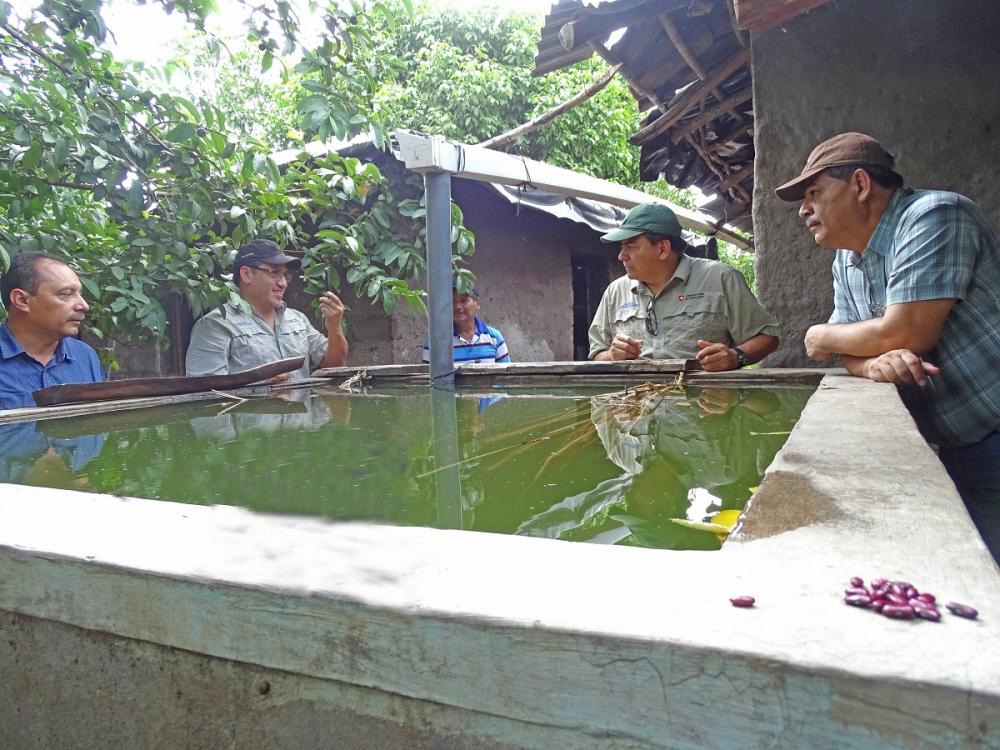IICA will assist CATIE in implementing a project that seeks to generate opportunities for producers to become involved in market initiatives.

Managua, 29 May 2020 (IICA). The Inter-American Institute for Cooperation on Agriculture (IICA) will assist the Tropical Agricultural Research and Higher Education Center (CATIE) in implementing a water harvesting project that will benefit 2,500 producer families in Nicaragua’s dry corridor.
The objective is to generate opportunities for producers to access and participate in markets, which, in turn, would enable them to improve their income and standard of living.
IICA’s representative in Nicaragua, Marcelo Núñez, and his counterpart at CATIE, Norvin Sepúlveda, signed a letter of understanding within the framework of the project “Adaptation of agriculture to climate change through water harvesting in Nicaragua”, funded by the Swiss Agency for Development and Cooperation (SDC).
“This initiative, which will strengthen the relationship between both institutions, is extremely valuable for the rural and most vulnerable areas of the country, which must utilize natural resources efficiently, ensure food security for families and access markets to sell their products”, explained Núñez.
Sepúlveda expressed his eagerness to collaborate “with a sister institution like IICA and to support Nicaraguan producer families”.
The project will be carried out in three departments, benefiting a total of 10 municipalities in the country: Nueva Segovia (Mozonte, Totogalpa, Telpaneca, Palacagüina, Yalagüina and Ciudad Antigua), Madriz (Somoto and San Lucas) and Estelí (Condega and Pueblo Nuevo).
The initiative has achieved progress in providing viable alternatives for the use of runoff water, including for agricultural and livestock production.
A strategic methodological framework to strengthen marketing and inclusive agribusinesses will also be developed, in order to link small-scale rural producer families to better market opportunities.
Within this framework, it will be necessary to foster associative work models and organizational strengthening, to substantially increase production volumes and wield greater influence during market negotiations.
The initiative will also drive the development of a regulatory framework of public policy instruments for integrated water resource management at the municipal level and for the adoption of technologies with special emphasis on water harvesting for production purposes, to support family farming.
More information:
Marcelo Núñez, IICA Representative in Nicaragua.











